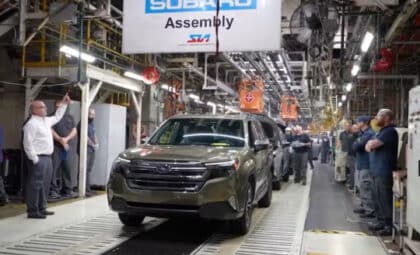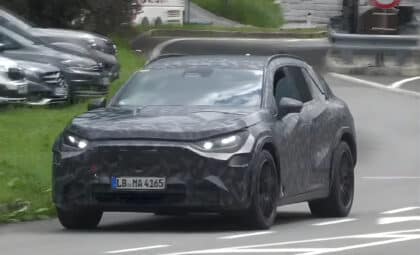 Photo: Blue Moonbeam Studio
Photo: Blue Moonbeam Studio
Dead deer, run-over raccoons, and squashed skunks are an unfortunate reality on America’s highways. But some waste managers have found a way to give these crushed critters a new lease on life.
Some states, including New York, Virginia, and Maryland, have programs that collect roadkill and re-purpose it as compost. Roadkill contains a high amount of essential nutrients and minerals, making it an ideal fertilizer for roadside landscaping projects that add a pop of welcoming color to highway exits. The idea of roadkill compost may be a little gross at first, but before you lose your lunch, let’s talk about the benefits of feeding plants a steady diet of road pizza.
Stay Safe on the Road: Items you need in your winter emergency kit

While roadkill smells pretty gross to humans, animals like turkey vultures, coyotes, and raccoons think it’s an all-you-can-eat buffet. This draws hungry wildlife to the roadside, where they’re also liable to be struck by passing vehicles. By removing roadkill and transporting it to a composting facility, waste managers are making the highways safer for other animals.
It’s better than burial

In the past, states have managed roadkill by simply dragging it into a roadside ditch or burying it beside the road. While this keeps carcasses out of sight and out of mind, it’s also very labor-intensive for waste managers — especially in extreme heat or bitterly cold conditions. It also has the potential to taint nearby groundwater sources, according to the director of the Waste Management Institute at New York’s Cornell University. Plus, modern infrastructure, such as underground pipes and cables, can complicate or prevent the burial of roadkill. With roadkill composting, the carcasses still get to decompose naturally — they just do it in a controlled environment, where they won’t cause pollution or cause hardworking waste managers to suffer out in the elements.
It’s a surprisingly clean process

You might expect a roadkill composting facility to be an eye-burningly smelly affair — but that isn’t the case. Thanks to the use of sawdust, wood chips, and hungry microbes, visitors to roadkill composting facilities report that they smell more like rich soil than street meat. Neighbors report that the roadkill compost doesn’t stink up the area, unlike manure compost.
Don’t Get Hit by a Surprise Breakdown: Know what these common car noises mean
It gives back to nature

Although the composting process takes about nine months to complete, once it’s finished, the rich humus is used to feed roadside gardens and help newly planted trees get a strong start. It can also help replenish depleted soil with nutrients for growing native wildflowers.
Kimiko Kidd is a native Daytonian. She graduated from Wright State University with degrees in environmental science and sociology. She loves her trusty old Honda Civic, but dreams of owning a 1974 Ford Falcon XB with a custom paint job and a vintage Kawasaki Z1000. In her free time, Kimiko can be found watercolor-painting, baking muffins, collecting rocks, playing old-school Nintendo games, writing her novel, sewing stuffed animals, and cosplaying as her favorite Mad Max characters. See more articles by Kimiko.









